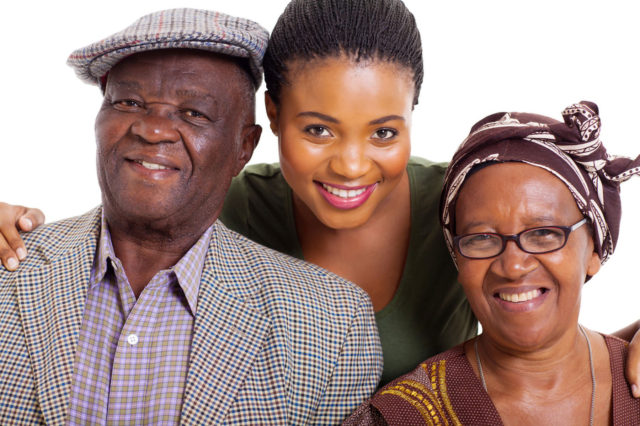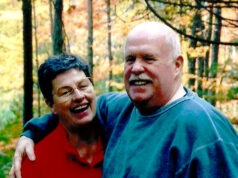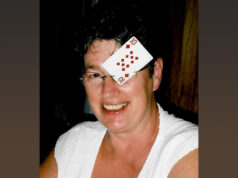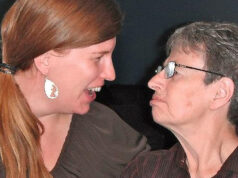Lianna Marie, CEO of AllAboutParkinsons.com, joins Suzanne to talk about how to be both visibly and emotionally strong, even with our bodies becoming more frail over time. Holding on to inner strength and resilience, and retain our empowerment.
She quotes Bob Marley: “You never know how strong you are until being strong is your only choice.” For many people, this resonates, there’s a lot to navigate. She saw her mom’s ability to withstand greater and greater challenges, because she had to. Losing physical strength but gaining emotional strength helped her mom live longer.
Lianna’s book “The Parkinson’s Path” will be coming out later this year. Currently, ”The Complete Guide for People With Parkinson’s Disease and Their Loved Ones” is available at Amazon. Find more of Lianna’s podcasts at her Expert page on the Answers for Elders website.
Suzanne: And welcome back everyone to answers for Elders Radio Network with the wonderful Lianna Marie from AllAboutParkinson’s.com. And Lianna and I have spent the first three episodes talking about really the process of coping and dealing with Parkinson’s disease. And it’s all coming from her upcoming book, I should say, “The Parkinson’s Path” And we’re excited about when that comes out and all that. But this is the last segment in this series and I am really interested in this title and, and we kind of started it off without even realizing it. It was just naturally flowing. It’s nice, but Lianna, you call it Standing Strong With Parkinson’s. Tell us a little bit about that.
Lianna Marie: It’s funny because I think a lot of people… I don’t wanna say it’s “funny”, but as my mom got further into Parkinson’s, 30 years is a long time for anything, very long. Qhen I think about the standing part, she may not have been standing a lot at the very end there. But, inside she was standing strong, I would say, and physically, we see a body that’s changing over those years, right? Getting weaker and weaker. Unfortunately, over time, that can happen with Parkinson’s people, but internally, emotionally, trying to hold on to that inner strength that made her feel like, we talked about before, empowered and that kind of thing. I love quotes. I’m gonna give another quote in this episode, it’s attributed to Bob Marley. “You never know how strong you are until being strong is your only choice.”
I posted that once on All About Parkinson’s Facebook page, and it really resonated with a lot of people because when you’re thrown into whatever it is, in this case, it’s the big Parkinson’s world. When you’re pushed into that pool, if you will, you have to learn how to swim pretty quickly as a Parkinson’s person, or a person who’s caring for someone with Parkinson’s. There’s a lot to navigate and strength is something that my mom, I will say I will give her lots of props, her inner strength. We get tested over and over again, and each time she became stronger and stronger, more resilient.
Not to say there weren’t…, it was a jagged line all the way up, as she grew in strength, you know. Well, two steps forward, one step back, one step forward, two steps back, that kind of thing. But overall, I will say again, in hindsight, I would see my mom’s ability to withstand bigger and bigger challenges because she had to, she had to. So she did and the same for us, we had to. So we did. And it sounds pretty simple, I’m making it sound simple. It wasn’t at the time. But I believe that, the strength, that physical, losing her physical strength, but gaining her emotional strength over time, is what helped her stay as long as she did on this planet with Parkinson’s.
Suzanne: I think about when my mom and I first came together for me to care for her, she was angry because she didn’t want to be… incapacitated, right? And she realized that she needed more care. I was in a situation where I was in my own career. It was partly an inconvenience for me, even though I didn’t ever want to do that. But it was a disruption in my life too. I mean, we both were disrupted, and I think one of the things that happened is, we were very lucky and I’m very glad we did this. We met with the therapist, the two of us and she came into mom’s assisted living and we had the conversations early on, and here’s the thing that she said to me, Lianna, which was really interesting. She said, I kept saying you’re so mean to me, and you’re nasty and you’re saying all these horrible things and, and finally it came down to it, and the reason was, she was pushing me away because she didn’t want to disrupt my life because she was picking that up. On the other hand, I was picking up her anger, she was was angry at the situation, not towards me personally. So what I said to her is I said, mom, do you realize what a gift you being with me is? And I said to her, never in my life have I had you all to myself, ever. Tthis is a gift for both of us. I will remember, Lianna, that defining moment between my mother and I, when we realized that we can be a team here. All the animosity went away. It was like this amazing thing. And from there forward, we just had this rhythm between the two of us. We developed a relationship and be we became a team. Really the key in all this is understanding where do things come from, not to take things personally, sometimes when things happen. And I think the other thing is to understand that there are going to be moments, but you become a team, you work together, and that helps you hold on to each other to be stronger
Lianna Marie: Yeah, like 22, when you tie one string versus two strings, right? You know, wound together. And I think, you know, set yourself up for success versus failure, obviously is a good as a plan too, and I think for my mom, we talked about surrounding yourself with people who believe in you, not people that are gonna tear you down. But I want to touch on to something that was just something for me. I think it was for both of us, honestly. I talk about this a lot in our care talks is the the power of music — it may not seem like a real thing. That would induce strength. But if you think about motivational music or whatever, and we talk about fight songs, right? So, one of the things I talk about when I’m writing the book, I was like, what gets me going? Because of my mom, it would totally work. You put that in your ears, you put the earphones on, and I’m getting up and going, and I had, fast forward 10 years, 15 years when I was then going in to visit her in long term care. And sometimes it wasn’t a very happy situation going in there. And my athletic mind gets going and I gotta get my pump-up music on. So I put my earphones on, or in my car and I turn up the music, and I had these songs I would go to. I smile because at that time it was all I could do. I don’t know what else to do here. I need to pump myself up. Nobody else is gonna help me do this. And so I had my fight song, and it rotated, and now I have like my inspired playlist or whatever. But I really think it’s something to consider for people who find music works for them. It’s something that you just need that click, to get going, that momentum piece to going to face whatever it is that you need that inner strength for. That’s just something that I just wanted to remember to say. And also, faith. A lot of people have recognized that about my mom, that she just had an inner strength that she found from her belief system. Not just system, but her personal relationship that she had with God. And then I think that for her was a really defining thing for her.
Suzanne: I’m gonna add one more thing to this, if you don’t mind. And that is, I always tell care partners, and I think we can also include that for those that suffer from chronic disease and pain, is look for the diamonds, right? Look for the little things, the things that you’re grateful for. And I really believe that there are miracles, and things to be grateful for in every moment of our lives, no matter how hard it is, it’s what we focus on. You mentioned it earlier, about hitting the bull’s eye, right? And the whole point is making sure you train your brain to look for the good, to stay positive about things, even though when it’s hard. It might mean you might not even be able to think of anything that happened, then make something up at that point. Fake it till you make it…
Lianna Marie: If I’m still alive. We could talk about that in another episode. But honestly, it’s like I’m here, I’m here, right? I am here. I always say there’s always somebody worse off than me. I hate to say it. But unless you’re dead, there is.
Suzanne: I learned something today, I learned something about myself. I learned to set a boundary. I, there’s all kinds of things that you can be grateful for because you grew as an individual. Even those hard days are part of polishing your characters would say, you know, you’re a, you’re a rough diamond when you come into this world. And all of these experiences in life are created by our pressure points in your life, and that helps mold your character. And that’s the whole point she would say to me, these are all opportunities for you to shine brighter in the world. And I think that applies a lot to those that are caring for others. And also as you’re going through your own process, if you have chronic illness, you have the ability to still be a contributing person in the world, you have purpose. And I think that’s one of the most powerful things we can always recognize.
Lianna Marie: For sure. AndI don’t want to say it’s easy. It’s a marathon, not a sprint, this, and we wanna just keep saying that, there’s that cliche, it doesn’t kill you, makes you stronger, but it really is over time, just like muscles that are trained. You’re your strength, you do need to train that. It doesn’t happen instantaneously. So don’t give up on that because it is, this is just a moment if you’re in that moment of grief or sadness or feeling despair, it is this moment and we will get through it.
Suzanne: And Lianna, I am so grateful for you to being on the show this month, and we look forward to hearing from you next month, and love your topics. And until next week, for all of you who are listening, be good to each other.













